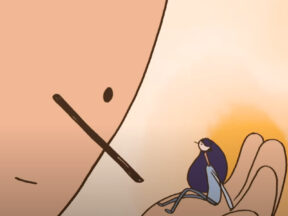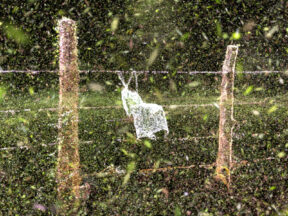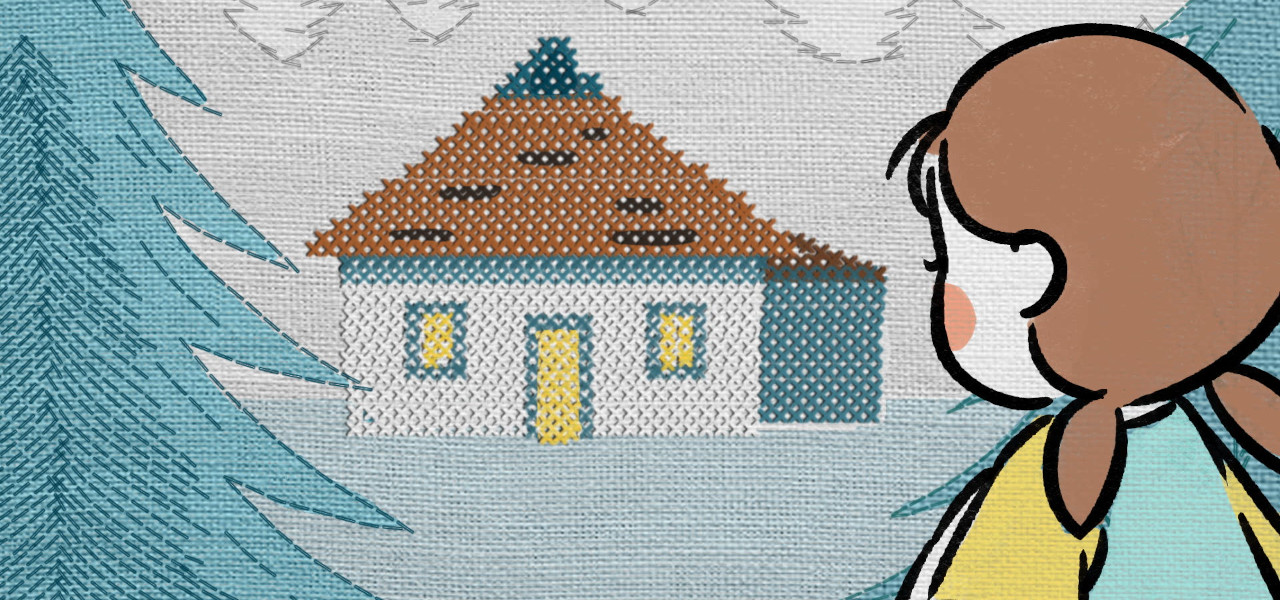
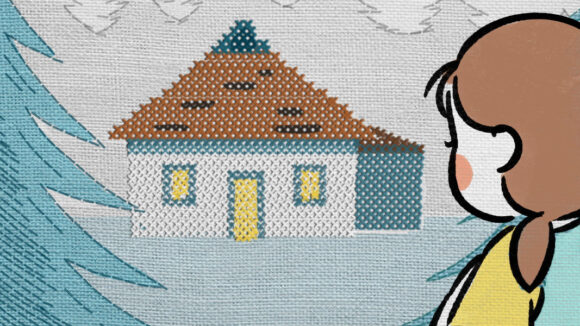
2024 Oscars Short Film Contenders: ‘Sunflower Field’ Director Polina Buchak And Animator Mulan Fu
Welcome to Cartoon Brew’s series of spotlights focusing on the animated shorts that have qualified for the 2024 Oscars. There are several ways a film can earn eligibility. With these profiles, we’ll be focusing on films that have done so by winning an Oscar-qualifying award at an Oscar-qualifying festival.
Today’s short is Sunflower Field from director Polina Buchak and animator Mulan Fu. The film earned its Oscar qualification by winning best animated short at the Woodstock Film Festival.
As war rages in Ukraine, a young girl awaits a call from her father. As time passes, she dozes through several dreamscapes, trying to find her way home.
Cartoon Brew: What kind of research went into preparing this film? What resources did you use to influence how you approached a sensitive subject like child psychology?
Polina Buchak: The idea for Sunflower Field came to mind because I had a nightmare. I was back home in Kyiv, and my family spoke about a hypothetical war, and I simply couldn’t grasp what they were talking about. The topic of war wasn’t new, though, because Ukrainians have been defending our independence from Russian occupation since 2014. So the tension of “What if?” has bled into our lives for almost 10 years. In January 2022, my family and I had breakfast, during which my mother got a notification from our building about where the residents could find the closest bunkers. That’s when I felt the fear all around me. I immediately thought about children – because even though they are far more emotionally in tune with the world than we give them credit for, I couldn’t understand how to explain and shield them from this fear.
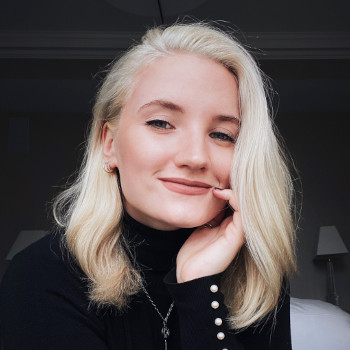
When I was still in Ukraine, we all tended to get together with friends and try to make sense of things. I observed our friend’s kids and watched their interaction with their parents. After February 24th, I had to adjust my script from a “What if?” story to a piece that reflects Ukraine’s reality during the full-scale invasion. Since then, I’ve been working with various non-profits and speaking with professionals who work in child therapy who shared their expertise and stories of some kids with difficult cases. It dawned on me that we are watching yet another generation of Ukrainians be traumatized as we are fighting for an independent future for them. Seeing places where I grew up be leveled to the ground also triggered feelings stemming from my inner child, so using all these pieces, I put together a story of a little hero who, despite the challenges, still finds her way home.
What was it about this story or concept that connected with you and compelled you to direct the film?
Buchak: I’ve always reacted to world affairs through my art – that’s the vessel I know how to use to get people’s attention emotionally. And when your own house is on fire, you simply cannot afford to be silent. One of the hardest things for me was realizing that my 16-year-old cousin was forced to learn what war was before he got to graduate high school – a period where a child should be dreaming and experiencing first love. My internal fear pushed me to write Sunflower Field because I had to bring attention back to the children. Watching people talk about how much children have taught us about bravery and resilience by sacrificing their childhood for us is exhausting. The fact that they are, to this day, experiencing the violence that human beings are capable of means we are still failing to protect them.
What did you learn through the experience of making this film, either production-wise, filmmaking-wise, creatively, or about the subject matter?
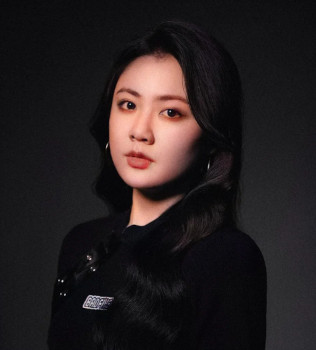
Mulan Fu: This short film means a lot to both of us. We worked on it remotely with a 12-hour time difference between us, with chaos brewing amid the pandemic and the war. What went on around us in two drastically different parts of the globe strengthened our motivation to capture a slice of the world back then through this short. We came from very different cultures, but working on this short together showed us how much emotional universality a creative medium like animation could evoke. Filmmaking-wise, Polina came from a live-action background, and I’m bringing the animation aspect into her vision. It was a great learning experience for both of us, merging our skills and perspectives to bring one vision alive.
Buchak: Echoing Mulan. We’ve known each other since our first NYU days in film school. She’s watched me write numerous scripts about what’s happening back home, and I am very familiar with her animation style – working with dreamscapes and mysticism. So, we were perfect partners for this.
Can you describe how you developed your visual approach to the film? Why did you settle on this style/technique?
Buchak: I wanted to visually show the progression of a nightmare and how our character drifts from scene to scene. We start with smoother brush strokes which show the girl’s reality. As soon as she’s dreaming, the shapes get sharper, and the coloring of objects is more abrupt. Including embroidery was crucial because I wanted to represent Ukraine visually as well as audibly. Collaborating with Mulan’s animation style is what brought the universality to the look.
Fu: I’m grateful that Polina approached me to collaborate on this short with my visual style in mind as part of her vision. We structured the visual approach generally around my style of character design and animation. There are a lot of important visual symbols in the story that contain cultural connotations as well (such as the cross-stitching), so we experimented with various textures to convey the symbols within the story, generating custom brushes and applying textile patterns to serve the visual narrative.


